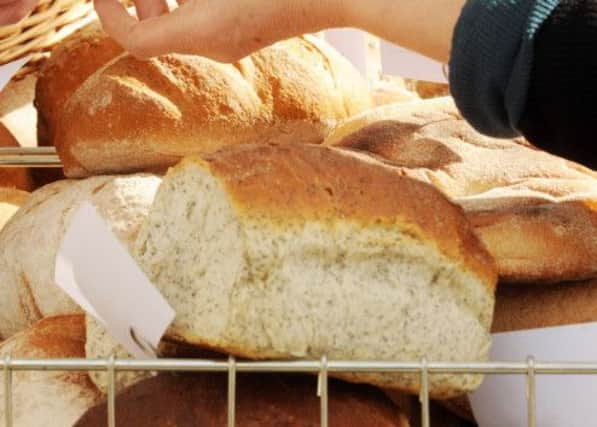2014 could be Scottish food and drink’s big year


Over the last week, we saw two sporting “anniversaries” being marked. With one year to go until the Commonwealth Games in Glasgow and one year passed since London 2012, the “legacy debate” continues. Just what does a nation derive from hosting – and footing a significant bill for – these huge events?
There is one area where a huge amount of legacy effort is being focused: food and drink. It may not jump out as the most obvious area, but if we get it right the benefits for Scotland can be huge and long-lasting.
Advertisement
Hide AdAdvertisement
Hide AdFood and drink is big business these days. With a turnover of more than £12 billion a year, the industry is Scotland’s biggest employer. The nation’s reputation as a “land of food and drink” is growing, particularly overseas where we’re seen increasingly as the home of world-class, premium-quality produce.
However, for any of you that have been to big events in Scotland in years gone past, you would be forgiven for questioning any claim by us to be the global home of world-class food. Let’s be honest, many of us have stood in a long queue at an event for ridiculously over-priced fast food that made you feel much worse for eating it.
Fortunately though, times are changing. At Scotland Food & Drink, the industry body that works to grow the sector and build its reputation at home and overseas, we’re working to set a whole new benchmark in quality event catering. A 2014 Food & Drink Team has been created, with all the relevant government agencies involved.
Glasgow 2014 in particular is taking a lead on this front. Two million meals will be served to athletes, spectators, media and all the others involved in the Commonwealth Games next year.
In practice, that means they will need 25,000 litres of milk, 10,000 loaves of bread, ten tonnes of seafood, and much more.
A Food Charter is being written to ensure that the caterers that win the contracts to supply the venues have to, in the first instance, source ingredients from Scotland’s natural larder. It’s a big step forward.
The Ryder Cup has already shown it can showcase local products when it was held in Wales four years ago, and so hopes for Gleneagles next year are also high, and likewise for all the major Homecoming 2014 events.
Work is also going on to improve the capability of food and drink producers to supply big events. It is one thing selling at a local farmers’ market, but another thing to have 50,000 people round a golf course or stadium who need food quickly.
Advertisement
Hide AdAdvertisement
Hide AdOf course, not every food and drink business is going to be in a position to work commercially with the big catering companies who run military-style operations at these events. So in development is our own “Food Provenance Village”, which will give smaller producers a chance to showcase themselves during next year’s event extravaganza.
Already there are good signs of progress in this food revolution. The T in the Park music festival now boasts “Healthy T” where Perthshire sheep farmers bring their lamb burgers. The Open at Muirfield produced a brochure cataloguing more than 20 Scottish food and drink businesses that supplied that event, where the standard burger served was quality-assured Scotch beef.
But the opportunities and focus next year go beyond just the event catering. As the eyes of the world turn to Scotland during 2014, as tourists and business people come to our shores, it is an unparalleled opportunity to cement our international reputation for food and drink. That can help retain food and drink’s position as Scotland’s fastest-growing export sector.
A host nation’s Games success is usually measured in medals won. Next year must be measured in much more. The effort on food and drink in 2014 is just one facet. But common across all the areas of work I’ve seen so far is a clear focus on delivering more than just a one-year spectacle. So here’s just one legacy challenge: if a Food Charter around healthy, quality Scottish produce can be developed and embraced by Glasgow 2014, why not adopt it in all our workplaces, schools and hospitals in future? It is time to be ambitious.
• James Withers is chief executive of Scotland Food & Drink, follow him on Twitter @scotfoodjames